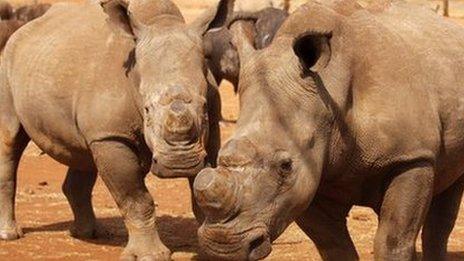Rhino poacher-hunting dog from South Africa gets hero medal
- Published
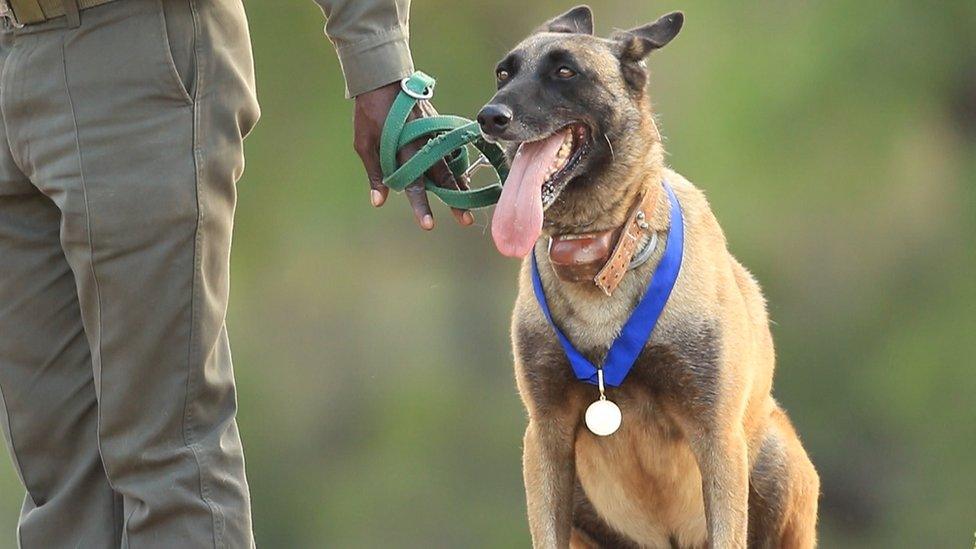
K9 Killer is a five-year-old Belgian Malinois who risks his life tracking poachers
A poacher-hunting dog in South Africa has been awarded a medal for his work in helping save endangered rhinos.
K9 Killer's tracking skills have led to the arrest of 115 poachers in Kruger National Park over the last four years.
His contribution to saving the rhino population was "truly remarkable", said UK vet charity PDSA, which awarded the gold medal for animal heroes.
There are fears that rhinos, hunted for their lucrative horns, could be extinct within 10 years.
There is huge demand for the horns in Asia for use in traditional medicine because of their supposed healing properties, even though they are made from the same material as fingernails.
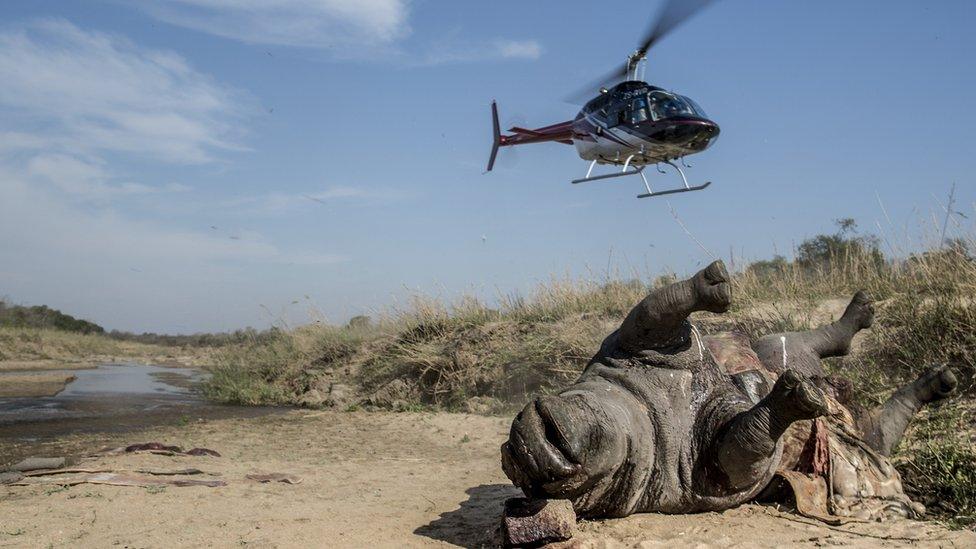
Rhino horn sold illegally can fetch more than gold
Poachers use a chainsaw to cut away the rhino's horns and often leave a drugged animal to bleed to death.
K9 Killer and his handler, Amos Mzimba, are flown by helicopter to track and apprehend armed poachers when sighted or when a dead rhino is discovered.
"It is an honour to have Killer by my side. It means a lot that he has been recognised for his skills," said Mr Mzimba, who added that the brave dog once saved him when a poacher was shooting at him.
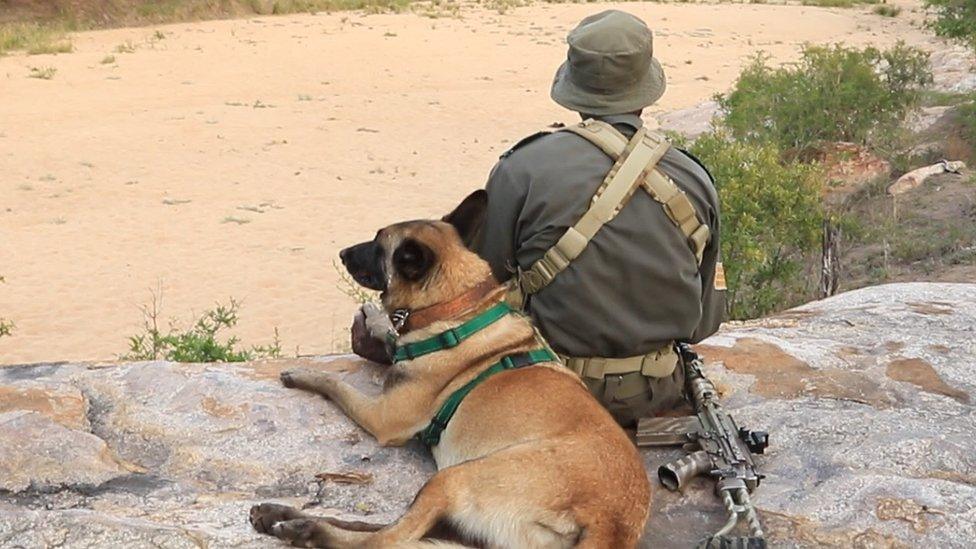
Handler Amos Mzimba says K9 Killer is gentle when off duty
"Thanks to him, we are arresting more poachers, but there is a lot more to be done if we are to save the rhino from extinction," he said.
The PDSA gold-medal winner was announced by British comedian Ricky Gervais, who praised K9 Killer and the Kruger National Park's Special Operations Team.
"He helped capture dozens of poachers in the last year alone, thanks to his amazing courage and dedication," Mr Gervais said in a video posted on YouTube, external.

Rhino poaching in South Africa

Much of the poaching occurs in the Kruger National Park, which covers an area of about 20,000 sq km (7,500 sq miles)
Nationwide figures have increased from 13 poached rhinos in 2007 to 1,215 in 2014
Criminal syndicates are involved, selling horns on the black market in Asia
Rhino horns sells for $65,000 (£43,000) per kg - more than gold - a South African court heard last year
Rhino deaths could start overtaking births between 2016 and 2018
Sources: South African Department of Environmental Affairs, Save the Rhino
- Published21 July 2014
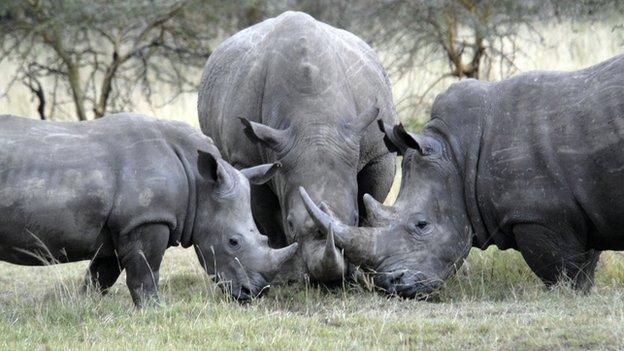
- Published9 February 2014
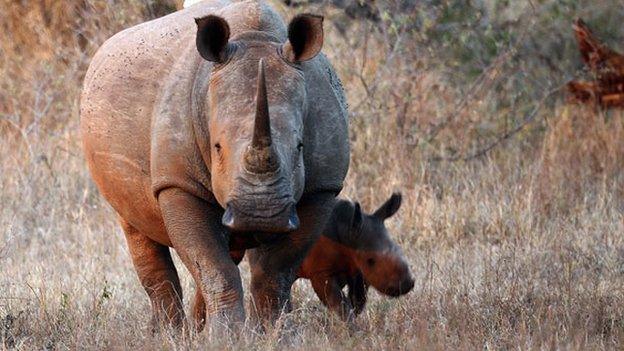
- Published30 October 2011
